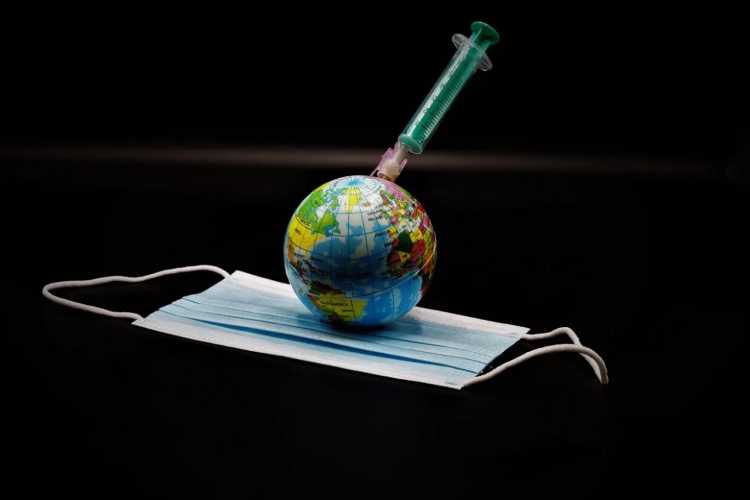
This year’s UN International Day of Multilateralism and Diplomacy for Peace (24 April) went off without even a whimper under the shadow of the global pandemic. This is one reason why one should reflect on the role of multilateralism and diplomacy for health in the context of the rampaging Covid-19 outbreak.
The Covid-19 pandemic has developed into a truly global health security crisis. Nations are increasingly looking at multilateralism and diplomacy as part of the pandemic response. Still there is no globally coordinated response to the pandemic. In the true sense, multilateralism and diplomacy for health failed to produce an adequate response, exposing the limitations of both tools for finding solutions for genuinely global challenges.
Though the World Health Organization (WHO) has mounted a response, it is not matching the scale of the devastation of the pandemic. Under the WHO leadership, the COVAX initiative is the vaccines pillar of the Access to Covid-19 Tools (ACT) Accelerator. The ACT Accelerator is a global collaboration to accelerate the development, production, and equitable access to Covid-19 tests, treatments, and vaccines. According to WHO, only less than 20 countries have functional National Regulatory Authorities (NRAs) and producing WHO prequalified vaccines.
READ I Women bear the brunt of job losses as Covid-19 devastates Indian economy
Covid-19 response through multilateralism
Despite calls for a pandemic treaty by 25 world leaders last month, some global health experts doubt that a treaty would be the most efficient way to strengthen the world’s capacity to beat Covid-19 and prevent future pandemics.
The values of multilateralism and international cooperation, which underpin the UN Charter and the 2030 Agenda for Sustainable Development, are fundamental to promoting a global response to the pandemic. The launch of several Covid-19 vaccines has enabled some developing countries to create a safety bubble for their population. However, it seems these countries have forgotten the message from WHO. :With a fast-moving pandemic, no one is safe unless everyone is safe.” The majority of the developing nations have yet to receive enough vaccine to vaccinate their people.
Even countries like India that have vaccine manufacturing facilities are yet to expand capacity. India is now at the mercy of a few vaccine manufacturing companies. There are several tools government could use to expand access to vaccines, diagnostics and essential medicines rapidly. Under the World Trade Organisation (WTO) trade agreements facilities, there are provisions to ensure the best interest of populations under public health emergencies.
Legal frameworks such as the World Trade Organization’s TRIPS agreement and accompanying TRIPS flexibilities create frameworks under which countries can access life-saving products during health emergencies. And the legally binding international health regulations (IHRs) that mandate countries to report disease outbreaks, and share information with WHO and other member states, is also a useful.
READ I 10 survival tips to weather the second wave of Covid-19
Policy paralysis hurting Covid-19 response
It seems the government is experiencing a health policy paralysis while dealing with the Covid-19 pandemic. It appears, a health crisis is used for opportunistic-monopolistic profiteering. Lack of policy initiative to reduce Covid-19 vaccine-induced health inequity demonstrates the current political dispensation’s moral poverty.
Years of disinvestment in health systems are also coming home to roost. Considering the inflation rates (the current rate is 5.52%), India spent 1.8% of its GDP on health in 2020-21. India currently ranks 145 out of 180 countries on quality of access to healthcare, and 179 of 189 countries that prioritise health in government budgets.
India has allocated $18.48 billion for weapons procurement in its 2021-2022 Budget. Governments facing a global pandemic will not be tempted to spend much on buying weapons. However, despite the economic impact of Covid-19, military spending reached nearly $2 trillion last year.
READ I Fertilizer policy 2021: Modi government faces Hobson’s choice on price hikes
System failure at United Nations
The United Nations came into being in 1945, following the devastation of the World War II, with promoting international peace and security as its core mission. The UN has been generally inefficient in addressing emerging challenges such as the Covid-19 outbreak and environmental crisis, primarily due to its structural inefficiency due to veto power of few countries.
Peace and security based on a military doctrine and the military-industrial complex remain the main stumbling blocks to ensure health security. One of the lessons from the Covid19 Pandemic is that time has come to change the overemphasis on defence doctrine glorifying death, war, toxic masculinity and fixation on border security.
Today the global community is experiencing an unprecedented biosecurity threat. Global health needs a new discourse on health security, as health is an essential security consideration today. The millions they spend on military intelligence and military hardware will not help the nations save the lives of their citizens.
Health security is an intersectoral issue, and well-established coordination mechanisms involving government and nongovernmental institutions are essential at the country level, regional level and the global level. Health security calls for a new strategic discourse, a call to strengthen health systems to manage crises beyond national boundaries. Doctors, nurses and healthcare workers are the heroes of our times. Each healthcare provider who died due to Covid-19 should be identified, acknowledged and rewarded.
There should be a global movement towards strengthening and expanding the health workforce to ensure health for all. There should be a global call to freeze military spending and to divert resources to ensure universal access to healthcare, vaccines and treatment.
On 23 March 2020, UN Secretary-General António Guterres issued an urgent appeal for a global ceasefire in all corners of the world to focus together on the actual global challenge – defeating Covid-19. He repeated the call at the start of the 75th UN General Assembly session in September. However, the global community generally ignored this call. Due to geopolitical considerations of the Security Council’s permanent members, the call for peace by the UN secretary-general did not get the much-needed security council endorsement.
UN security council’s inaction for global action on Covid-19 is unpardonable. The permanent members have no moral right to hoard power. The security council resolution on a much-needed Covid-19 response was throttled by a permanent member due to the fear of being exposed over the initial inaction on the pandemic.
The global community’s demand for security council reform should be no more a call to expanded membership in the UN Security Council. The UN general assembly should call to dismantle the Security Council in its current form. Security Council should be replaced with a revolving membership in a Board of UN Governance, elected from the General Assembly.
The Covid-19 pandemic provides an urgent need and opportunity to explore multilateralism and diplomacy for health. However, the pandemic also exposed the depth of geopolitical games played by some countries to promote their desire for global domination, lack of overall investment for universal access to health care, and the dearth of global statesmanship.
(Dr Joe Thomas is associate dean, faculty of sustainability studies, and head, School of Public Health, MIT World Peace University, Pune.)
Dr Joe Thomas is Global Public Health Chair at Sustainable Policy Solutions Foundation, a policy think tank based in New Delhi. He is also Professor of Public Health at Institute of Health and Management, Victoria, Australia. Opinions expressed in this article are personal.

